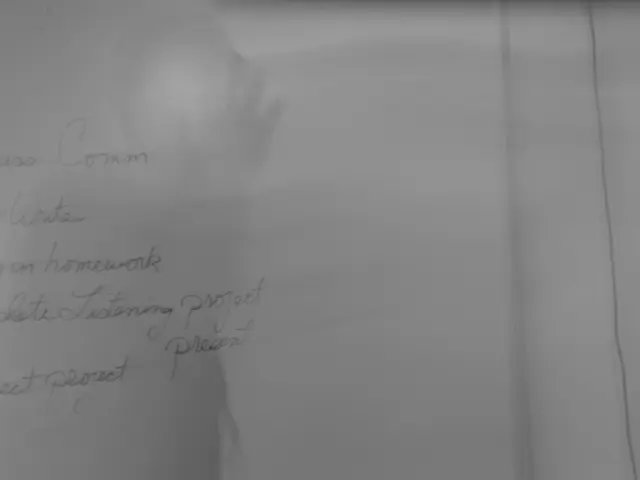Military Response to Pakistani-Inspired Terror Incident in Pahalgam, India
In the heart of the global arena, the ongoing standoff between India and Pakistan following the brutal terrorist attack on innocent tourists at Pahalgam, has been stirring up quite the buzz. The condemnation of these heinous acts by US President Donald Trump and Russian President Vladimir Putin, has strengthened India's bold move to establish a formidable deterrence against Pakistan.
India's strategy, following a period of meticulous preparation, took the enemy by surprise when it launched multiple strikes, not unlike 'Operation Balakote,' on nine terror camps and training complexes across the Line of Control and the India-Pakistan border in the wee hours of May 7. This bold move was part of India's smartly articulated strategy to target only the terror establishments and spare the Pakistani military entities.
India has continuously emphasized the necessity of pursuing and apprehending terrorist kingpins such as Hafiz Saeed and Masood Azhar, regardless of their hiding places within Pakistan's military's protective embrace.
Details of this action-packed operation were presented by Col Sofiya Qureshi and Wing Commander Vyomika Singh, key players in the meticulous planning of India's counter-terror effort. These two "daughters" of India were at the forefront of avenging the terror-induced widowhood of countless women in Pahalgam.
"Operation Sindoor" was an Intelligence-based project, expertly planned and executed by India's National Security Advisor Ajit Doval, with unprecedented precision and coordination among the defence forces.
Geopolitically, relations between India and the US rest on a solid foundation due to President Trump's unwavering denunciation of Islamic terror and his vision for India as a crucial ally in his strategy to counter China. The FOB ministers' meeting at Washington in January 2025, upgraded India's profile in Quad, reflecting the close alliance between these democracies.
In the wake of this operation, the international community extends robust support to India's resolute fight against terrorism. Russia, which was at the receiving end of an attack by ISIS-K on a concert hall near Moscow, stands with India in their mission to stamp out terrorism.
President Trump's 'America First' policy is marked by his keen understanding of the economic route China took to become a global power, the adverse trade balance faced by the US, and the unwarranted drain of resources due to conflicts in Europe, the Middle East, and South Asia. As part of this strategy, Trump's presidency has been focusing on administrative reforms and discarding the funding of Diversity, Equity, and Inclusion projects.
India, managed by the steadfast leadership of Prime Minister Narendra Modi, is handling its relationship with the US diplomatically, strategically, and economically, ensuring that it does not get ensnared in the "narrative" of playing second fiddle to the US or being too soft on Trump's immigration and trade policies.
Tensions between India and Pakistan escalated significantly following Pakistan's directed Lashkar-e-Taiba infiltrators' attack on Hindus in Pahalgam, which left 26 innocent civilians dead. The Modi-led government has responded by granting full freedom to the defense forces in planning and executing retaliatory actions.
India must continue to eliminate terror bases and the entire leadership of terrorists on a consistent basis, calling out Pakistan's hand in the Pahalgam massacre. To achieve this, India's diplomacy must leverage international support and outmaneuver China's pro-Pak stance.
Pakistan remains committed to using terrorism as a cheap and effective weapon to bleed India. This necessitates India to establish a permanent deterrence through cross-border strikes, capable of being escalated if Pakistan attempts to attack military targets.
With the Pahalgam terror attack and the subsequent retaliatory strikes, it is of utmost importance to assign a senior civilian of national security and intelligence background to oversee Jammu and Kashmir. This individual must be respected by the Defense services, be well-acquainted with the separatist and pro-Pak forces in the region, and possess professional expertise in activating local intelligence networks. The strategic importance of J&K has never been more critical following the terror attack and the subsequent retaliatory strikes by India.
- The international community is robustly supporting India's resolute fight against terrorism, following the aftereffects of the Pahalgam attack and the subsequent retaliatory strikes on terror camps.
- In the global news arena, the convergence of politics and crime-and-justice is evident as India continues to pressure Pakistan for apprehending terrorist kingpins like Hafiz Saeed and Masood Azhar.
- Interestingly, the general-news landscape also shows the impact of sports and politics, with key figures like Col Sofiya Qureshi and Wing Commander Vyomika Singh, who were integral to India's counter-terror effort, being now celebrated as heroes.
- On a broader scale, the ongoing standoff between India and Pakistan has also become a focal point in the sports world, with many athletes expressing their condemnation of terrorism and supporting India's bold move to establish a formidable deterrence.
- Following the meticulous preparation and execution of 'Operation Sindoor,' the economy of India is expected to experience a significant boost due to the favorable response from international allies and the deterrence it has created against terrorism.








